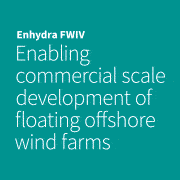MALAWI | October 19, 2022 – Today, the Global Energy Alliance for People and Planet (GEAPP) launches the ‘Scaling Renewables in Malawi to Underpin Development’ energy program to assist Malawi in achieving universal access by 2030. The program will support Malawi in its goals to increase electricity access from 18% to 100% and improve energy security and reliability.
H.E. President Lazarus McCarthy Chakwera said: “Malawi is proud to join the Global Energy Alliance for People and Planet and reaffirm our commitment to ensuing everyone, everywhere has equitable access to reliable, affordable energy. Together our work across the clean energy ecosystem: supporting utility-scale clean energy storage, building decentralized renewable energy to increase agricultural productivity, and developing integrated energy planning, will help transform our country’s economic development.”
Joseph Nganga, Vice President for GEAPP states, “Integrated energy planning is crucial to achieving universal energy access. We are thrilled to support the launch of Malawi’s energy program and are committed to working together to scale clean energy for the people of Malawi.”
Under the GEAPP program, the Government of Malawi, led by the Ministry of Energy, is also launching the Malawi Integrated Energy Planning Tool in collaboration with Sustainable Energy for All (SEforALL).
The data-driven interactive tool represents the first national integrated energy program and provides critical data and analysis that will assist a range of stakeholders, including the Government and private sector, to make informed decisions on lowest cost electrification, clean-cooking, and cold chains for vaccine distribution across the country.
“I am grateful to the Government of Malawi for their partnership with Sustainable Energy for All and for their commitment towards translating their ambition for achieving SDG7 into real action on the ground,” said Damilola Ogunbiyi, CEO and Special Representative of the UN Secretary General for Sustainable Energy for All. “Having a comprehensive Integrated Energy Plan which makes use of geospatial data and modelling, can provide optimized, dynamic, and data-driven ways of identifying the mix of technologies and spending required to achieve universal energy access.”
Approximately 3.7 million Malawian households – 78% of the population – and 47% of public facilities including schools and hospitals lack access to electricity service.
For Malawi to reach sustainable energy for all, the tool estimates that approximately 4.8 million additional connections will be required across the country, with mini-grids representing the lowest cost solution for around 350,000 of them, and solar home systems for around another 1 million.
The tool also identifies the funding required to reach universal electrification in the country and the targets set by the Malawi SDG7 Cleaner Cooking Energy Compact, for example:
- The lowest cost plan for Malawi to electrify the nation through grid, mini-grid and solar home systems will require USD 3.6 billion in investment.
- USD 108.8 million will be required to provide or replace cookstoves.
- USD 3.6 million will be required to provide stand-alone systems to power the health facilities.
- USD 17.6 million will be required for solar-battery retrofits to improve cold-chain resilience in grid-tied facilities.
GEAPP believes that Malawi can be an exemplar for economic development driven by lowest cost renewables and has already approved USD 27.6 million worth of support.



























